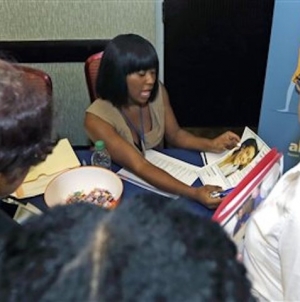-
Tips for becoming a good boxer - November 6, 2020
-
7 expert tips for making your hens night a memorable one - November 6, 2020
-
5 reasons to host your Christmas party on a cruise boat - November 6, 2020
-
What to do when you’re charged with a crime - November 6, 2020
-
Should you get one or multiple dogs? Here’s all you need to know - November 3, 2020
-
A Guide: How to Build Your Very Own Magic Mirror - February 14, 2019
-
Our Top Inspirational Baseball Stars - November 24, 2018
-
Five Tech Tools That Will Help You Turn Your Blog into a Business - November 24, 2018
-
How to Indulge on Vacation without Expanding Your Waist - November 9, 2018
-
5 Strategies for Businesses to Appeal to Today’s Increasingly Mobile-Crazed Customers - November 9, 2018
Rebooting Greece: how to get its economy going again
Euros weakened by 0.3 percent yesterday after the Greek shares plunged by more than 16 percent for the main Greek index and a 30 percent sell-off for bank stocks thereby proving that the economy of the debt-ridden country is nearly shattered.
Advertisement
By day’s end, the Greek market closed down 16 percent, with bank stocks battered as the Greek government struggles to negotiate a new bailout with its global creditors, the country’s third in the past five years.
“There’s a sense of panic”, said Evangelos Sioutis, financial analyst and head of equities at Guardian Trust. That suggested that without the banks, which hold a weighting of around 20 percent, the index would have risen on the day. “The outlook is not clear”.
Markets in the rest of the world, however, were largely unaffected, a sign that investors outside Greece have now largely cut off ties with the country.
A European Union (EU) flag flutters outside the Athens’ Stock Exchange in Athens, Greece, Monday, August 3, 2015. European shares closed higher.
Despite a brief spell of weak growth last year, the economy is now shrinking again after a punishing recession that wiped off more than a quarter of output, cost over a million jobs and prompted mass emigration of skilled professionals.
To avoid defaulting on it, Greece would need money from the bailout programme it is negotiating or, short of that, an interim loan from its creditors.
That’s why betting on Athens Exchange may be the trading opportunity of 2015, as it was the big trading opportunity of 2014, though it will be a good idea to wait until there is a better feasibility on the direction of the country’s political spectrum before placing any major bets on a sustainable rebound of Greek stocks.
Two surveys illustrate the extent of the damage on the Greek economy in July from the bank closures, money controls and general uncertainty.
Meanwhile, a monthly survey of business and consumer confidence, the Economic Sentiment Indicator, fell for a fifth consecutive month in July to its worst level since October 2012.
Talks on the new bailout came after weeks of negotiations and controversy that included Greek voters rejecting an earlier bailout package in a referendum.
A report on Sunday in the newspaper Avgi, which is close to Syriza, said the government was seeking 24 billion euros in a first tranche of bailout aid from worldwide lenders in August.
Advertisement
The markets elsewhere are narrowly mixed after both the Reserve Bank of Australia and India’s central bank kept their benchmark policy rates steady, matching expectations.





























